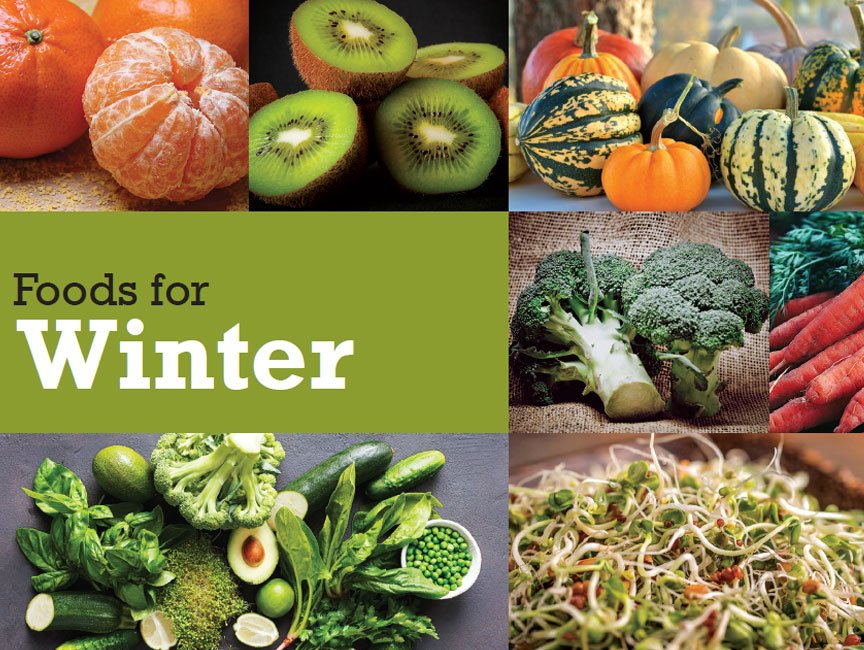
Foods for Winter
- bey0ndM@gz!ne
- February 3, 2021
- Food-Recipe
- 0 Comments
With the cold weather and winter approaching, eating the right foods can play a big part in helping us get through the season in good health. During the colder months, we require more nutrients to help us cope with the chilly climate, boost our immune systems and protect ourselves against infection. Zinc, iron, magnesium and vitamins B, C and D are essential to our wellbeing. The good news is that nature knows exactly what we need and the fruits and vegetables that grow in colder weather are essentially rich in these particular vitamins and minerals.
Winter squash, kiwi and citrus fruits
These are typical winter fruits and vegetables that are jam packed with vitamin C, which, as we all know, is the supplement that gives us energy. Vitamin C is also essential for keeping our immune systems on track and ready to fight infections. The benefit of getting vitamin C from food sources as opposed to supplements are that they are easily and efficiently absorbed – even in small quantities, certain foods can provide a substantial dose of a particular nutrient.
Broccoli, sprouts, green vegetables and carrots
These vegetables are rich in zinc, magnesium and vitamin B and are very useful in maintaining a balanced body, allowing us to adapt to cold weather easily and to build immunity against infections. They are also rich in fibre, which helps our gut remain healthy. Our intestinal flora is often referred to as our “second brain” and has multiple interactions with other systems in the body. First, it supports the hormonal system, and second, it helps us stay warm and energetic despite the weather. It can even influence our moods. Intestinal health is also a pillar for the immune system, a healthy gut being vital when it comes to fighting infections.
Nuts, seeds and cold-water fish
These foods are rich in omega 3, and beneficial in preventing cardiovascular disease. It’s also great for tackling depression. Shorter hours of daylight mean we produce less vitamin D in winter, having a potentially negative effect on our mood. Foods rich in omega 3 can help decrease anxiety and lift our spirits.
Supplements
It can sometimes be useful to take supplements, as not all vitamins and minerals can be effectively absorbed via food sources. For example, vitamin D. Leveraging supplements in your diet, even for a short period, can help support your body during the winter.
Do not hesitate to talk about these options with your medical practitioner or nutritionist.




